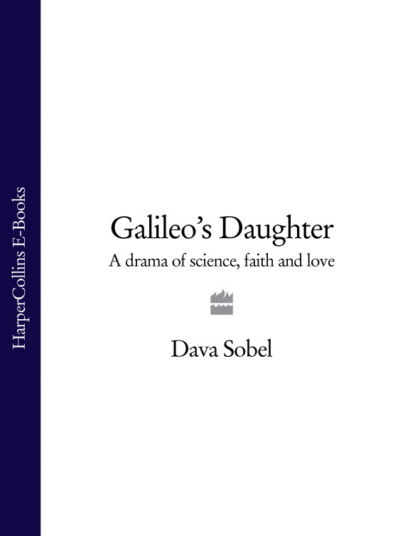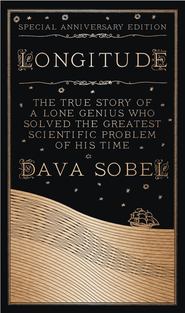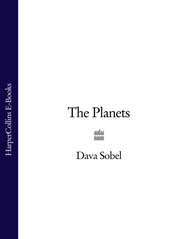По всем вопросам обращайтесь на: info@litportal.ru
(©) 2003-2024.
✖
Galileo’s Daughter: A Drama of Science, Faith and Love
Настройки чтения
Размер шрифта
Высота строк
Поля
Father Grassi’s angry, offended published rebuttal followed swiftly in the book Libra Astronomica, or Astronomical and Philosophical Balance, which he wrote in Latin under the pen name Lothario Sarsi, a purported student of his. As its title promised, the Libra of 1619 hung Galileo’s ideas about comets on a steelyard balance scale and found them weightless.
Compelled to respond and silence the noisy barking of his opponents, Galileo began retorting right on the title page of his riposte. He called it II Saggiatore, or The Assayer – thus replacing the crude scale of the Libra with the more delicate balance assayers used to analyse the quantity of pure gold in gold ore. Father Grassi, retaliating again later in his turn, accidentally on purpose referred to this book as Assaggiatore, or Winetaster – to imply that Galileo, a notorious lover of good wine, had been drinking when he wrote The Assayer.
In 1620, as the tenor of the comet debate turned nastier, the Holy Congregation of the Index raised the spectre of the Edict of 1616 by announcing at last the necessary corrections that must be made to Copernicus’s text, De revolutionibus, in order to have it removed from the Index of Prohibited Books. The congregation insisted on watering down some dozen statements by Copernicus affirming the Earth’s motion, in order to make them sound more like hypothetical suggestions. Galileo dutifully penned the required changes into his own copy of De revolutionibus, though he took care to cross out the offending passages with very light strokes.
Galileo ventured no mention of the Copernican theory in The Assayer. Such discussion would have been imprudent, given the edict, but also irrelevant: Copernicus had not discussed comets in his book, and Galileo’s view of comets as optical illusions automatically divorced them from the order of the Sun and planets as far as he was concerned. He even derided ‘Sarsi’ and ‘his teacher’ for granting comets the status of quasi-planets. ‘If their opinions and their voices have the power to call into existence the things they have considered and named,’ quipped Galileo, ‘why then I beg them to do me the favour of considering and naming “gold” a lot of old hardware that I have about my house.’
Indeed, Galileo persisted, the play of the Sun’s light could set the most mundane objects aglitter, to fool the unsuspecting: ‘Sarsi has but to spit upon the ground and undoubtedly he will see the appearance of a natural star when he looks at his spittle from the point towards which the Sun’s rays are reflected.’
Galileo took the occasion of The Assayer to mock the philosophical terms that masqueraded as scientific explanations in his day. He noted that sympathy, antipathy, occult properties, influences and their like were all too often ‘employed by some philosophers as a cloak for the correct reply, which would be: “I do not know.”’
‘That reply’, he reiterated, ‘is as much more tolerable than the others as candid honesty is more beautiful than deceitful duplicity.’
Avoiding the forbidden topic of the world system, The Assayer thus considered the current comet controversy in the larger context of the philosophy of science. Galileo drew an unforgettable distinction between the experimental method, which he favoured, and the prevailing dependence on received wisdom or majority opinion. ‘I cannot but be astonished that Sarsi should persist in trying to prove by means of witnesses something that I may see for myself at any time by means of experiment,’ Galileo wrote.
Witnesses are examined in doubtful matters which are past and transient, not in those which are actual and present. A judge must seek by means of witnesses to determine whether Pietro injured Giovanni last night, but not whether Giovanni was injured, since the judge can see that for himself. But even in conclusions which can be known only by reasoning, I say that the testimony of many has little more value than that of few, since the number of people who reason well in complicated matters is much smaller than that of those who reason badly. If reasoning were like hauling I should agree that several reasoners would be worth more than one, just as several horses can haul more sacks of grain than one can. But reasoning is like racing and not like hauling, and a single Barbary steed can outrun a hundred dray horses.
It took Galileo two years to complete The Assayer, beset as he was throughout by many family and official matters. Marina Gamba died in February 1619, leaving Galileo’s children officially motherless. Having helped both his daughters take the veil, Galileo now atoned for the messy circumstances of his son’s birth by getting Grand Duke Cosimo II to legitimise Vincenzio on 25 June, two months before the boy’s thirteenth birthday. Cosimo handled this matter-of-factly enough, knowing his own Medici forebears to have fathered at least eight illustrious illegitimate sons, two of whom had become cardinals – and one of those had traded the cardinal’s biretta for the pope’s tiara as His Holiness Clement VII.
Meanwhile Galileo’s mother, Madonna Giulia, grew older and ever grouchier at the house in Florence where she had stayed when her son moved to Bellosguardo. ‘I hear with no great surprise that our mother is being so dreadful,’ Galileo’s brother, Michelangelo, commiserated in October 1619 from the safe distance of Munich. ‘But she is much aged, and soon there will be an end to all this quarrelling.’
Вы ознакомились с фрагментом книги.
Приобретайте полный текст книги у нашего партнера:
Приобретайте полный текст книги у нашего партнера:
Другие электронные книги автора Dava Sobel
The Planets




 4.5
4.5







